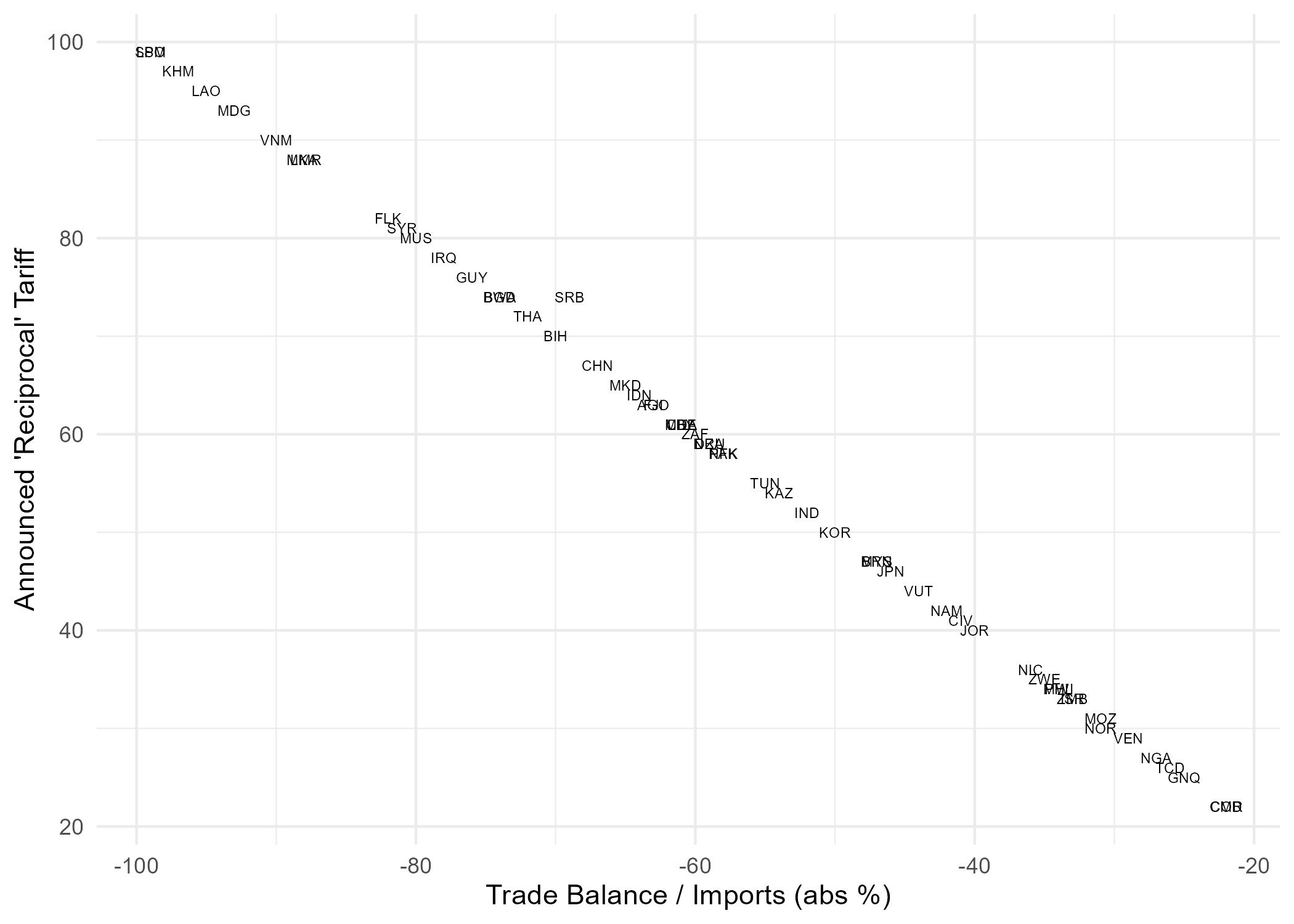Summary: this post provides R code that reproduces the announced 'reciprocal' tariffs imposed by the US. Soon after Trump's tariffs were announced, it was noted the 'reciprocal' tariffs looked suspiciously like the US trade deficit divided by imports. Ever the skeptic, I couldn't believe it could be this simple. So. I decided to check it out myself with the help of R and UN Comtrade data. Here's my answer, neatly documented in R code. If you're interested in reproducing this analysis you'll need to get an API key for the comtradr package. Once you have an API key you need…
Calculating the United State’s ‘reciprocal’ tariffs


